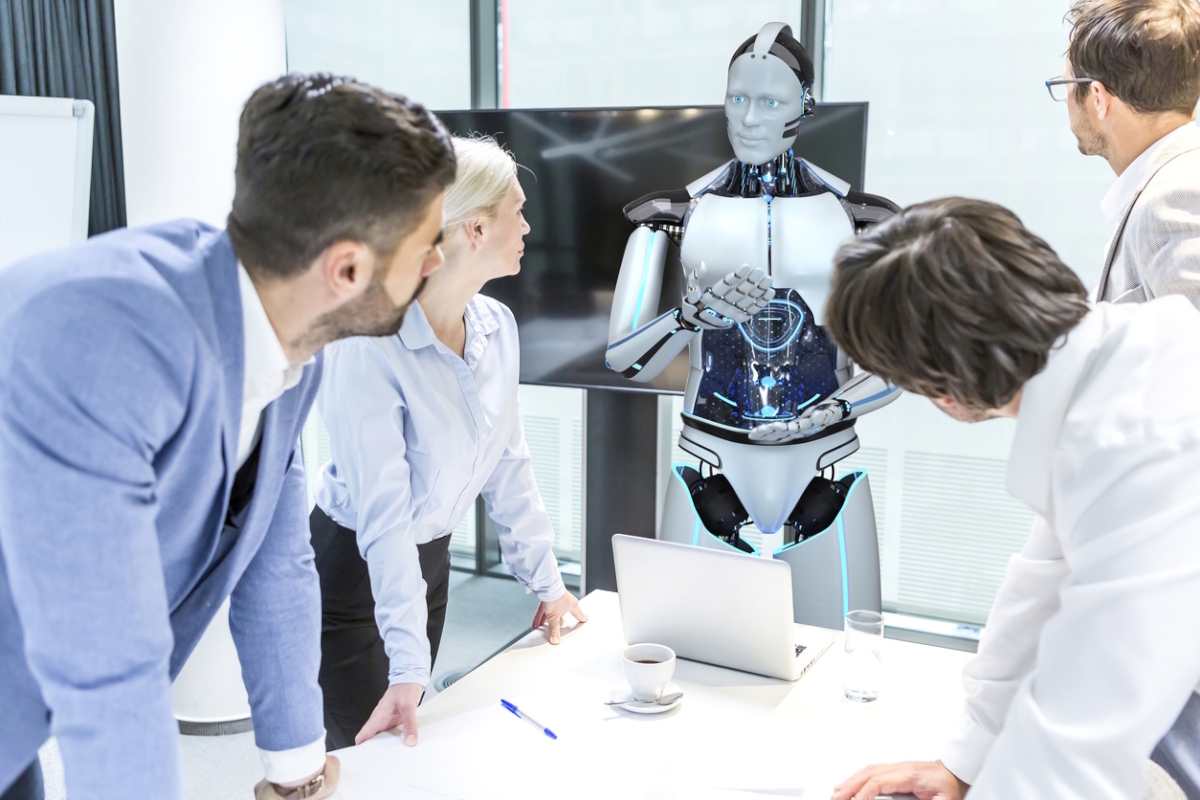50/50: the future of software innovation with human-AI collaboration

Emilio Salvador at GitLab explores how developers must evolve from code writers to "cognitive architects" in an era when humans collaborate with artificial intelligence on software development
When I first studied Latin, what struck me wasn’t only its difficulty, but the way it trained me to think architecturally. Latin compels you to visualise how intricate systems interconnect, to grasp dependencies that span multiple levels, and to construct logical frameworks capable of bearing intellectual weight. Each sentence becomes an exercise in engineering a network of related components where adjusting one piece reverberates throughout the entire construction.
At the time, I didn’t realise that this way of thinking would eventually mirror the skills I needed to build software. Those long hours untangling the grammar of an ancient language quietly built a foundation for understanding today’s challenges. As AI transforms our approach to building software, the developers who will thrive are those capable of thinking systematically about human-AI partnerships.
The economic stakes behind this shift are clear. GitLab’s latest UK C-Suite survey shows that AI-driven software development is already delivering significant savings, amounting to approximately £11,000 per developer annually. Scaled across the UK’s 465,000 developers, that translates into more than £5 billion in unlocked value.
What also caught my attention is that while 72% of UK executives believe the optimal human-AI partnership should be at least 50/50, the current reality shows humans handling three-quarters of the work, with AI contributing just one-quarter. This is an opportunity for developers today.
Thinking like a cognitive architect
The developers thriving in this new landscape aren’t just prompt engineers. They’re cognitive architects who can deconstruct business challenges into fundamental principles and design "blueprints of thought" that guide AI agents to create precise solutions.
This architectural approach mirrors what I learned parsing Latin texts. You must understand the underlying structure before you can manipulate the surface elements. When 86% of executives expect agentic AI to become the industry standard within three years, developers who can think systematically about human-AI workflows will be indispensable.
UK executives are embracing a new reality. Software innovation is now a core business priority for 89% of executives, and 87% are already experiencing business growth as a direct result of their AI investments over the last 12 months. With executives estimating a 53% increase in revenue and a 54% boost in developer productivity due to the use of AI, this isn’t a distant future. The competitive advantage is already here.
What can developers do?
Here are three strategic moves to position yourself for this optimal 50/50 AI-human future of software innovation:
1. Master AI communication and context management. The art of working with AI isn’t about writing perfect prompts. It’s about designing process-oriented thinking that guides AI through complex tasks. Start by practicing how to frame problems, provide appropriate context, and structure interactions with AI systems. Focus on creating contextual workflows that align with business objectives, breaking complex problems into manageable chunks that AI can handle effectively.
2. Develop system-level thinking. As AI becomes more capable of generating code, your value shifts from code writer to strategic architect. Spend time defining how systems connect to subsystems, establishing business logic, and building high-context environments for AI tools. Think of yourself as an orchestrator of code, rather than just a writer of code, by doing analysis and planning upfront, and then reviewing outputs to ensure they don’t create technical debt.
3. Specialise in quality and security for AI-generated code. With 61% of UK executives citing cyber-security threats as their main concern around agentic AI adoption, developers who can validate AI reasoning processes, implement adversarial testing, and establish specialised review processes for AI-generated code will be highly sought after. This represents a fundamental evolution from traditional debugging to validating AI reasoning and ensuring business logic alignment.
An AI-led world still needs people
The survey also revealed that 100% of UK executives believe that human contributions are valuable for software development, with creativity and strategic vision ranking as the most desired human inputs. This isn’t about AI replacing developers. It’s about elevating human capabilities.
While AI excels at pattern recognition and code generation, the architectural thinking required to see how systems interconnect, anticipate dependencies, and design for long-term stability remains distinctly human. This is why creativity and strategic vision top the list of valued human contributions.
The companies leading the charge are those implementing governance frameworks that blend AI capabilities with human control. With 57% implementing regulatory-aligned governance measures around agentic AI and 51% developing internal AI policies, the organisations that optimise this human-AI partnership today will shape the future of software development.
Don’t miss the moment
Software transformation is gaining pace, with 78% of UK executives willing to invest over half of their annual IT budget in innovation, and 88% having adopted frameworks that link development activities to key business outcomes.
The developers who will thrive are those who can think architecturally about human-AI collaboration while bringing the creative vision and strategic thinking that only humans can provide. They won’t just adapt to this transition. They’ll shape it.
The £5 billion opportunity isn’t just about AI doing more work. It’s about developers doing better work, solving bigger problems, and creating more value than ever before. The question isn’t whether AI will change software development, it’s whether you will be ready to help define what that transformation looks like.
Emilio Salvador is VP of Strategy and Developer Relations for GitLab
Main image courtesy of iStockPhoto.com and style-photography

Business Reporter Team
You may also like
Most Viewed
Winston House, 3rd Floor, Units 306-309, 2-4 Dollis Park, London, N3 1HF
23-29 Hendon Lane, London, N3 1RT
020 8349 4363
© 2025, Lyonsdown Limited. Business Reporter® is a registered trademark of Lyonsdown Ltd. VAT registration number: 830519543





